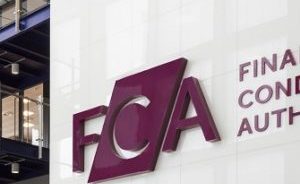The Do Not Call Registry officially launches on 2 January 2014, although Singaporeans wishing to block unwanted telemarketing calls and text messages from that date have been urged to sign up for it now.
Even if they do, they may still continue to receive unwanted telemarketing calls for up to 60 days after the day they registered; this period is expected to drop to 30 days after 2 July 2014, according to the Personal Data Protection Commission, a Singapore watchdog agency.
The introduction of the Do Not Call (DNC) Registry comes as Singapore’s financial services regulator, the Monetary Authority of Singapore, has been preparing to introduce a range of new regulations aimed at making the marketing of financial advice and products more transparent and suitable to the specific needs of the individuals they’re being sold to. The new regulations are being introduced in the wake of a Financial Advisory Industry Review (FAIR), unveiled in 2011.
Singaporeans wishing to put their numbers on the DNC list are encouraged to do by calling a toll-free number or by going to a dedicated DNC Registry website, www.dnc.gov.sg. Here, they are invited to tick boxes for each of the DNC registers they wish to be on: No Voice Call, No Text Message, No Fax Message.
Leong Keng Thai, chairman of the PDPC, said the DNC Registry means that Singaporean consumers “now have the flexibility to decide if and how they want to receive telemarketing messages”.
His organisation, he added, will monitor market developments to ensure that the registry “benefits individuals and organisations”.
Time-honoured marketing tool
Although not every financial advisory company executive is keen to admit it, cold-calling is a time-honoured way many financial services companies – particularly banks and general insurance agents – find new clients, not just in Singapore but around the world.
For this reason, some observers in Singapore say, the DNC Registry could have a significant effect on some businesses there, particularly those that target a mass-market audience, and rely heavily on cold-calling to find their clients.
Increasingly, however, governments are cracking down on cold-calling, and not just in Singapore. In 2011, for example, the United Arab Emirates Central Bank unexpectedly banned cold-calling, without warning, catching many advisers there off guard.
‘In keeping with FAIR review’
In Singapore, many advisory industry executives, including Henley Group chief executive and founder Antony Michell, see the DNC Registry as being in keeping with the spirit and ethos of the FAIR review, which stresses transparency, professionalism and treating customers fairly and with suitable advice and products.
“We think the Do Not Call registry will provide a great catalyst for shifting the way in which practices operate, which will ultimately improve the reputation of the industry and will benefit all those companies that have managed to adapt their methods to survive in a post-cold-calling world,” Michell said.
“At the Henley Group, we committed over a year ago to focus on removing cold calling from our business, focusing our resources on more efficient and sustainable methods of generating business, such as targeted activities to continue to encourage referrals from existing clients.”
Ian Pryor heads up the expat-focused team of IPP Financial Advisers, one of Singapore’s largest advisory firms, which has a large Singaporean clientele in addition to expatriates. He says that an internal Do Not Call list was already in place at IPP even before the DNC Registry was launched – a measure, he notes, of the company’s desire to respect the public’s wishes in this area.
“We will now need to integrate that [list] with the national DNC Registry to make sure we also include the names on there as well,” he adds.
“We are also looking at [installing] an automated system, whereby, whenever a number is called from the IPP office phones that is on the DNC Registry, a warning message comes up, to allow time to cancel the call before it's actually made.”
The case for cold calling
With the Do Not Call Registry coming into force, defenders of cold calling are not rushing to be quoted, but privately, some say that it is not always a bad thing. Some, for example, echo the observations of one advisory company executive, who told International Adviser some years ago that he had "never known any potential client to phone up and ask for critical illness cover, income protection or life cover – but that definitely doesn’t mean they don’t have a tangible need for such products".
Such products, he and others argue, need to be "sold" rather than just being made available to purchase, as people rarely realise they need them until after it is too late.
To read and download a copy of the DNC Registry User Guide for consumers, click here.




